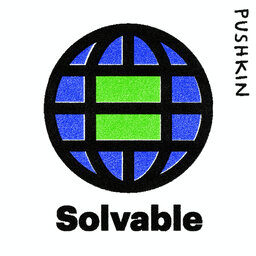Misuse of Data is Solvable
Jacob Weisberg talks to Jake Porway about using big data for good.
Learn more about your ad-choices at https://www.iheartpodcastnetwork.com
In 1 playlist(s)
Solvable
Solvable showcases the world’s most innovative thinkers and their proposed solutions to the world’s …Social links
Follow podcast
Recent clips

Introducing Weight For It from Ronald Young Jr.
11:46

Paul Rosolie, Protecting the Amazon Rainforest
24:35

Sterlin Harjo, Reservation Dogs
24:21
 Solvable
Solvable